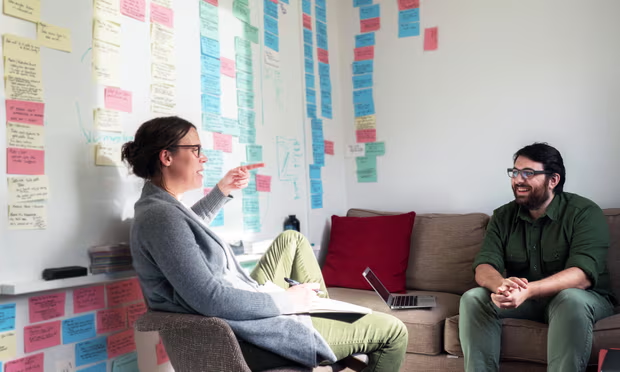Gandhinagar: American journalist and radio producer, Brian Reed, best known for his work on the groundbreaking podcast “S-Town” (2017), which he hosted and co-created with Julie Snyder for This American Life and Serial Productions, presents his latest venture into long-form audio journalism–Question Everything.
Reed is grappling with a moment that would make any reporter squirm: listening to a colleague dissect his ethical choices in S-Town. Apart from that this podcast is also an opportunity for journalists to engage in self-reflection and to explore ways to make journalism better.
In the very first episode, senior Australian journalist Gay Alcorn criticizes Reed about “S-Town,” which chronicled the life and death of John B. McLemore, who is an eccentric horologist from rural Alabama. McLemore died before giving explicit consent for such a personal story to be told. “There’s something deeply uncomfortable about excavating a man’s life after he’s gone,” Alcorn says. “Did you have the right to tell that story?”
Reed acknowledges the criticism and reflects on the ethical considerations involved in reporting on a deceased individual’s life. After the release of S-Town, a group of Alabama lawyers sued him. The lawsuit alleged that Reed had profited from McLemore’s death by producing and distributing S-Town without the consent of McLemore’s estate.
To win their case, the lawyers had to prove that S-Town was not journalism. Reed ultimately settled the lawsuit, but the experience led him to deeply question the very nature of his profession.

In another episode, Reed hosts a roundtable discussion with journalists, including Ira Glass of This American Life podcast, about the state of journalism. They discuss the challenges of reporting in an era of political polarization and how to reach audiences who distrust mainstream media.
Reed also interviews Barton Gellman, a Pulitzer Prize-winning journalist who quit journalism to join the Brennan Center for Justice because he felt he could no longer be effective in fighting for democracy as a journalist.
Gellman argues that journalists are too focused on documenting reality and not enough on trying to influence it. He highlights his work at the Brennan Center, which includes conducting simulations to prepare officials for potential abuses of power by Trump and his allies.
The podcast highlights the tension between the traditional role of journalism as a neutral observer and the growing need for journalists to be more proactive in combating misinformation and defending democracy.

Journalists like Astead Herndon and Glass, believe that journalism’s role is to reflect reality. Others interviewed in the podcast, like Jeff Jarvis, believe that journalists need to be more aggressive in calling out lies and holding powerful people accountable. Still others, like Gellman, believe that journalism itself is no longer an effective tool for protecting democracy and that other forms of activism are necessary.
The podcast also examines how declining trust in the media has real-world consequences too. The episode about the spread of lies about Haitian immigrants in Springfield, Ohio, illustrates how misinformation can lead to real harm, including bomb threats and hate crimes.
MV Neil, a journalist who covered the situation in Springfield, argues in the podcast that the media needs to do a better job of putting these lies into context and explaining how they are being used to spread fear and division.
Another episode titled “Save a Marriage” tells the story of Dick and Emily Newton, a couple whose political differences, heightened by their consumption of polarized news sources, strained their marriage.
The episode explores how they found common ground through a newsletter called Tangle and how the newsletter’s approach to presenting information helped Dick, who had believed the 2020 election was stolen, accept that it wasn’t.
Dick leans right, favouring news sources like ‘Breitbart’, while Emily leans left, trusting outlets like The New York Times. This divide created tension, especially around the 2020 election. Dick believed the election was stolen, fueled by sources like the film 2000 Mules, which promoted unsubstantiated claims of voter fraud.
Overall, Question Everything‘s focus on journalists does provide valuable insights into the profession and it’s challenges. However, to effectively address the issue of declining trust in journalism, the podcast may need to expand its scope to include more diverse perspectives and explore potential solutions beyond journalistic introspection.
By primarily focusing on the perspectives of journalists, the podcast may risk only reaching an audience that already values and trusts journalism. It is not journalists who harbor the deepest distrust in the profession, but rather the general public.
While the podcast explores the challenges facing journalism, it may not provide concrete strategies for addressing them. Some critics suggest that the insights offered in the podcast are not particularly novel and may risk preaching to the choir.













